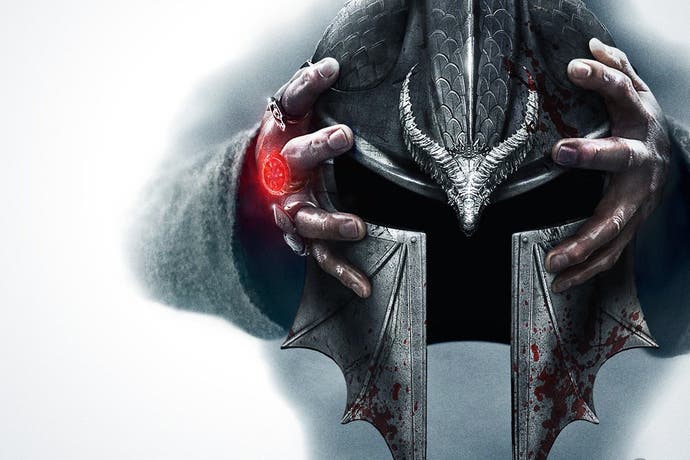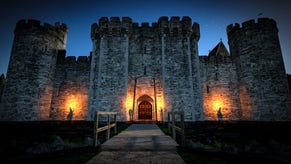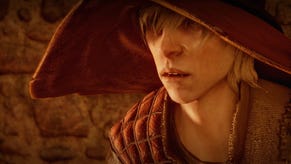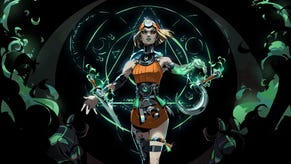Dragon Age: Inquisition review
Tevinter is coming.
There's a definite end of an era feel to much of Dragon Age: Inquisition, whether or not BioWare has a fourth in the pipeline. This is what everything's been leading towards; all those choices, all the adventure, all the drama, and all the epic battles so far - of good vs. evil, of mages vs. templars and, of course, of RPG fans everywhere vs. Dragon Age 2.
Love or loathe that game, Inquisition feels like an open attempt to atone for its sins - a comeback play from a company that knows that still being one of the genre's heaviest hitters doesn't mean its reputation isn't on the line. Luckily, lessons have been learned. No longer does one cave try to pass for ten, or has streamlining taken all the choice out of adventuring. This is still firmly a modern BioWare RPG rather than a return to Origins' long abandoned old-school aspirations, but one bursting in ambition and scale.
That scale isn't just in its maps, though those are the first hint of it, and the difference between them and what came before is night and day. Finally, Thedas feels like a world rather than a series of glorified corridors - one open for exploration. It's not fully open, a la Skyrim; each major area is neatly packed in its own box, linked by a map as before. Those boxes however now stretch out as far as the eye can see, across valleys and mountains, with waves smashing the coast, villages, enemy camps, caves, swamps and temples all littering the landscape... along with a number of smaller maps for specific stories and major interiors... and both a horse and fast travel needed to zip around on your many jobs. How beautiful does everything look turned up to full? Enough that I put this review on hold for a day so that I could get a GeForce 970 to replace my old 660. It was clear it deserved nothing less.
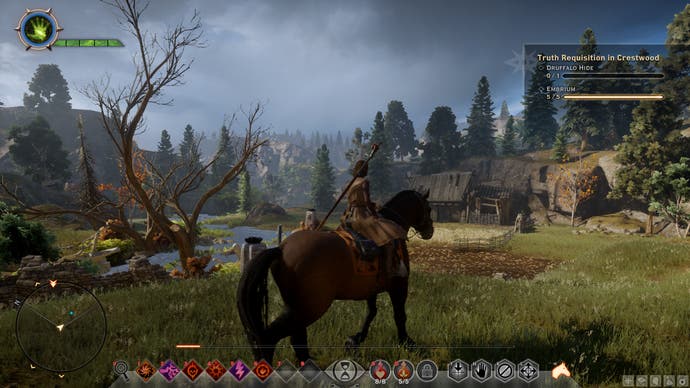
Once the shine had worn off though, disappointment began setting in. Inquisition zips quickly through its set-up, in which you're a survivor of a mysterious breach in the sky that's spitting out demon spawning tears, but not quickly enough to hide that you're an amnesiac hero, the threat is basically Oblivion's gates recoloured green, and that the villain of the piece is referred to as "The Elder One", as if the entire writing team had just thrown their hands up in defeat. The role-playing too, pretty as it is, didn't feel like BioWare. There are straight up MMO style quests, like collecting 10 bits of meat, which at least make sense in context - that you're helping refugees and refugees need food. Others, however, are thrown in with no finesse whatsoever. You find a letter that says, in about as many words, "Girls really dig people who can kill bears!" and then ping, your Quest Journal suddenly thinks you're interested in bear-hunting. The first hour of a game is a bad, bad time for it to be resorting to this crap.
The reason for the sack of activities where normally there'd be more involved quests is that Inquisition takes as many cues from the likes of Assassin's Creed as other RPGs, with its maps a sack of quests, collectibles, secret bits and general things to do. These in turn provide levels and gives the Inquisition the power to take on bigger problems in more traditional quests, like preventing the assassination of the Empress of Orlais, home of some of the dodgiest accents this side of 'Allo 'Allo. The further you get, the more of that good stuff there is to do, including spin-offs from the main quest like your companions' personal quests. Early on though, it's just busy-work. The big threat is boring, and it's hard to take everyone seriously when they rattle on about its urgency but still have time to make fancy Inquisition banners and armour, and the basic solution is openly "Just get some mages to help zap the green swirly thing."
Thankfully, a fifth or so of the way in the villain finally tips their hand, and amateur hour ends. Now you're officially in charge of the Inquisition instead of simply the only person in it able to get anything done, the stakes become meaningful and dramatic, the mysteries become interesting. Most importantly, there's a beautiful sense of actually having power, of sitting in judgement over defeated foes, of dispatching spies and soldiers around Thedas to do your bidding, of conquering forts that fill with your people instead of just setting up campsites, of going from this small heretical organisation to a major power that decides the outcome of elections and gets called up by the King for favours, and seeing your home base go from a ruined, desolate castle into the salvation of the land. At least, if all goes well.
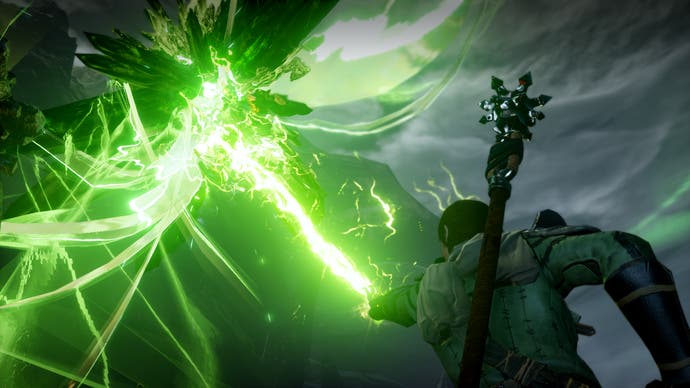
None of this is remotely deep or strategic. When asked if a situation calls for diplomacy, spies or military strength, any of them will work and few require any more effort on your part than actively not declaring "Zhu Li, do the thing!" at an unlistening monitor. There's enough of it to compensate for that though, and more than enough wrapping to sell the illusion, while still justifying why you're always in the field instead of consigned to a desk. Most stories and decisions just provide trinkets or Dragon Age's equivalent of Mass Effect 3's War Assets, though others can unlock their own stories and decisions further down the story. Somewhat oddly they have timers of the kind you'd expect to see in an F2P mobile game, but those don't get in the way. Actual story quests are clearly labelled, and the flavour ones optional.
Much of the time though, the only way to get things done is to head out with swords, shields, staffs and spells and crack some skulls. Inquisition changes up the combat dramatically, with the biggest difference being that there are now no healers or out-of-combat health recharges. Instead you have camps where you can heal up and replenish your stock of healing potions, with more opening up as you push through each map. Regular potions are free, and all I ever used. You can discover better and different ones though, which require ingredients to make, as well as upgrade the ones you've got, providing a good middle ground between Dragon Age's constant herb farming and automatic healing. This is also much how the whole game works when it comes to aspects like crafting custom gear, upgrading weapons and ticking off all the quests on each map. You can if you like, but at least on Normal difficulty, you never actually have to if you just want to plug on with the story.
Combat tries to offer a similar compromise, though it's not entirely successful. By default fights are much like Dragon Age 2's pausable action, with other party members controlled by basic scripts. By default, for instance, they'll glug potions until you're down to two, so that you can choose who gets the last couple yourself. It's also possible to zoom out to a tactical view as in Origins and play from afar. In practice though, everyone moves around far too much and too quickly, with mages especially just spamming endless pyrotechnic attacks limited only by a slight cooldown. There were many exciting battles on the main story, but none I could say were tactically very interesting, and none of them against one of the oddly unimaginative damage-sponge bosses, with Rift clean-up detail especially wearing out its welcome. Like the equally boring Oblivion gates, every one is basically the same - deal with a couple of demon waves, don't stand on exploding ground, close rift. Yawn. At least there are meatier bonus challenges elsewhere, not least taking on the huge dragons around the world.
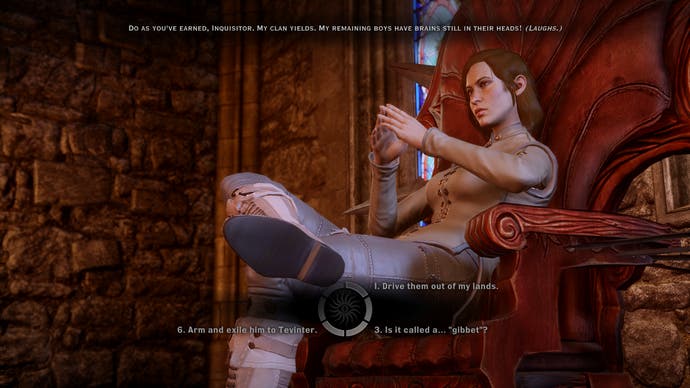
While that side provides most of the raw action though, it's the adventure and political parts of the game that make Inquisition work - its understanding that a party in Orlais, where the Great Game is played for the highest stakes, should be just as dangerous as anything that happens in a dungeon. After two games of controlling a ragtag bunch of misfits, it's also interesting to be in a position of genuine power for once; to be the one who directly makes and lives with calls on controversies like whether mages deserve their freedom.
At times though, it can still be oddly... not bland as such, but definitely flatter than it should be, with an odd reluctance to follow through on anything that might create a sense of vulnerability or ambiguity. Case in point: the Inquisition is constantly sold as being controversial and deeply mistrusted, but in practice just about everyone except all-out evil factions tend to be reasonably happy to see you, and often desperate to sign up. Your first proper enemy meanwhile literally introduces himself by punching a nun in the face.
This is all especially notable because the whole concept, and your position at its head, feels like it was invented specifically to offer interesting moral choices and difficult decisions. Very rarely though are you given a choice whether the best option isn't obvious, and I can't think of a single one that rebounded in an interesting way later on. There's nothing wrong with classic heroic fantasy and do-gooding of course, but here the shades of grey are notable by their absence rather than their intrigue, especially in the wake of other recent offerings like The Witcher 2 and Game of Thrones, where decisions constantly have huge implications. Here, everything remains insular, confined to its own bit of the story rather than being intertwined and paying off when you least expect it. At least, unless I was just unlucky.
It doesn't help that the cast is ridiculously big for a group of people that you're meant to forge connections with. In BioWare tradition, new party members come thick and fast, but here you also have a team of up to four advisors with their own storylines, a castle full of people, a big board of operations and all kinds of distractions. It's just too much at once, with the inevitable result being that most of the team just ends up standing around waiting to be called on.
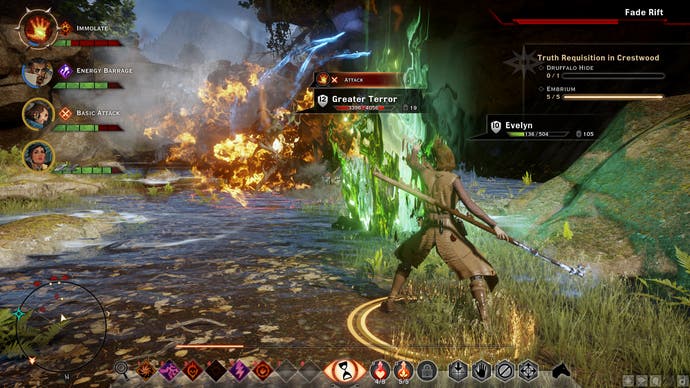
Easily my favourite of the ones I used was Dorian, the amusingly moustached Tevinter mage and the Inquisition's designated snarker (also BioWare's first gay party member, though that only really comes up in his personal quest - a somewhat on-the-nose PSA with experience points), who tended to be partnered with the slowly defrosting Cassandra from the last game and a Qunari warrior called Iron Bull. The rest of the team run the gamut from a childlike elf to a mysterious spirit, but having no particular need of them, I had to go out of my way to even say hello. I'd have made an exception and brought Varric along on quests even though I didn't need a rogue, but he and Leliana (now your spymistress rather than a party member) have gone through the same thing as Anders, with much of their humour surgically removed between sequels. Leliana in particular is barely recognisable as the bard who was once up for a foursome with Isabella the pirate queen, and the ambient dialogue in general never got close to the zip of Dragon Age 2's banter or the squabbling between Morrigan and Alistair. BioWare games usually do a great job of making your group feel like family. Here, they were assets.
Despite this and its shaky start though, Inquisition does come together into a very worthy Dragon Age sequel that never stopped being compelling once it had the chance to build up its momentum. To some extent the quieter moments throughout even help to amplify the bigger quests and more dramatic plot points, while the free choice of where to spend your attention afterwards makes for a refreshingly open RPG that's still focused on the story it's telling - one that goes from strength to strength as the stakes ramp up and the war for Thedas begins.
Its not-so-fatal flaw is that in offering so much, both in terms of player choice and in going for peak-BioWare in every aspect of the game, those individual moments, characters, activities and plot beats often don't benefit from the focus and importance needed to unlock their full potential. Still, that's hardly a crime, and one more than made up for by the many high points that I can't name directly for fear of spoilers, the hours and hours both adventuring in Thedas as it was always meant to be, and sitting at the highest levels of its politics. The true power of the Inquisition may be illusory, but that doesn't stop it being satisfying to wield while it lasts.
